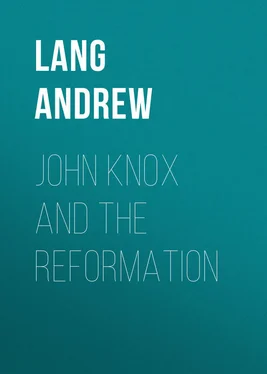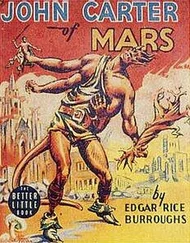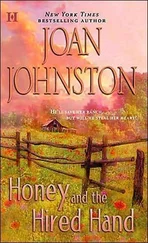Andrew Lang - John Knox and the Reformation
Здесь есть возможность читать онлайн «Andrew Lang - John Knox and the Reformation» — ознакомительный отрывок электронной книги совершенно бесплатно, а после прочтения отрывка купить полную версию. В некоторых случаях можно слушать аудио, скачать через торрент в формате fb2 и присутствует краткое содержание. Жанр: foreign_antique, foreign_prose, на английском языке. Описание произведения, (предисловие) а так же отзывы посетителей доступны на портале библиотеки ЛибКат.
- Название:John Knox and the Reformation
- Автор:
- Жанр:
- Год:неизвестен
- ISBN:нет данных
- Рейтинг книги:4 / 5. Голосов: 1
-
Избранное:Добавить в избранное
- Отзывы:
-
Ваша оценка:
- 80
- 1
- 2
- 3
- 4
- 5
John Knox and the Reformation: краткое содержание, описание и аннотация
Предлагаем к чтению аннотацию, описание, краткое содержание или предисловие (зависит от того, что написал сам автор книги «John Knox and the Reformation»). Если вы не нашли необходимую информацию о книге — напишите в комментариях, мы постараемся отыскать её.
John Knox and the Reformation — читать онлайн ознакомительный отрывок
Ниже представлен текст книги, разбитый по страницам. Система сохранения места последней прочитанной страницы, позволяет с удобством читать онлайн бесплатно книгу «John Knox and the Reformation», без необходимости каждый раз заново искать на чём Вы остановились. Поставьте закладку, и сможете в любой момент перейти на страницу, на которой закончили чтение.
Интервал:
Закладка:
John Knox, son of William Knox and of – Sinclair, his wife, 3 3 Probably Mrs. Knox died in her son’s youth, and his father married again. Catholic writers of the period are unanimous in declaring that Knox had a stepmother.
unlike most Scotsmen, unlike even Mr. Carlyle, had not “an ell of pedigree.” The common scoff was that each Scot styled himself “the King’s poor cousin.” But John Knox declared, “I am a man of base estate and condition.” 4 4 Knox , Laing’s edition, iv. 78.
The genealogy of Mr. Carlyle has been traced to a date behind the Norman Conquest, but of Knox’s ancestors nothing is known. He himself, in 1562, when he “ruled the roast” in Scotland, told the ruffian Earl of Bothwell, “my grandfather, my maternal grandfather, and my father, have served your Lordship’s predecessors, and some of them have died under their standards; and this” (namely goodwill to the house of the feudal superior) “is a part of the obligation of our Scottish kindness.” Knox, indeed, never writes very harshly of Bothwell, partly for the reason he gives; partly, perhaps, because Bothwell, though an infamous character, and a political opponent, was not in 1562-67 “an idolater,” that is, a Catholic: if ever he had been one; partly because his “History” ends before Bothwell’s murder of Darnley in 1567.
Knox’s ancestors were, we may suppose, peasant farmers, like the ancestors of Burns and Hogg; and Knox, though he married a maid of the Queen’s kin, bore traces of his descent. “A man ungrateful and unpleasable,” Northumberland styled him: he was one who could not “smiling, put a question by”; if he had to remonstrate even with a person whom it was desirable to conciliate, he stated his case in the plainest and least flattering terms. “Of nature I am churlish, and in conditions different from many,” he wrote; but this side of his character he kept mainly for people of high rank, accustomed to deference, and indifferent or hostile to his aims. To others, especially to women whom he liked, he was considerate and courteous, but any assertion of social superiority aroused his wakeful independence. His countrymen of his own order had long displayed these peculiarities of humour.
The small Scottish cultivators from whose ranks Knox rose, appear, even before his age, in two strangely different lights. If they were not technically “kindly tenants,” in which case their conditions of existence and of tenure were comparatively comfortable and secure, they were liable to eviction at the will of the lord, and, to quote an account of their condition written in 1549, “were in more servitude than the children of Israel in Egypt.” Henderson, the writer of 1549 whom we have quoted, hopes that the agricultural class may yet live “as substantial commoners, not miserable cottars, charged daily to war and slay their neighbours at their own expense ,” as under the standards of the unruly Bothwell House. This Henderson was one of the political observers who, before the Scottish Reformation, hoped for a secure union between Scotland and England, in place of the old and romantic league with France. That alliance had, indeed, enabled both France and Scotland to maintain their national independence. But, with the great revolution in religion, the interest of Scotland was a permanent political league with England, which Knox did as much as any man to forward, while, by resisting a religious union, he left the seeds of many sorrows.
If the Lowland peasantry, from one point of view, were terribly oppressed, we know that they were of independent manners. In 1515 the chaplain of Margaret Tudor, the Queen Mother, writes to one Adam Williamson: “You know the use of this country. Every man speaks what he will without blame. The man hath more words than the master, and will not be content unless he knows the master’s counsel. There is no order among us.”
Thus, two hundred and fifty years before Burns, the Lowland Scot was minded that “A man’s a man for a’ that!” Knox was the true flower of this vigorous Lowland thistle. Throughout life he not only “spoke what he would,” but uttered “the Truth” in such a tone as to make it unlikely that his “message” should be accepted by opponents. Like Carlyle, however, he had a heart rich in affection, no breach in friendship, he says, ever began on his side; while, as “a good hater,” Dr. Johnson might have admired him. He carried into political and theological conflicts the stubborn temper of the Border prickers, his fathers, who had ridden under the Roses and the Lion of the Hepburns. So far Knox was an example of the doctrine of heredity; that we know, however little we learn in detail about his ancestors.
The birthplace of Knox was probably a house in a suburb of Haddington, in a district on the path of English invasion. The year of his birth has long been dated, on a late statement of little authority, as 1505. 5 5 See Young’s letter, first published by Professor Hume Brown, John Knox , vol. ii. Appendix, 320-324.
Seven years after his death, however, a man who knew him well, namely, Peter Young, tutor and librarian of James VI., told Beza that Knox died in his fifty-ninth year. Dr. Hay Fleming has pointed out that his natal year was probably 1513-15, not 1505, and this reckoning, we shall see, appears to fit in better with the deeds of the Reformer.
If Knox was born in 1513-15, he must have taken priest’s orders, and adopted the profession of a notary, at nearly the earliest moment which the canonical law permitted. No man ought to be in priest’s orders before he was twenty-five; Knox, if born in 1515, was just twenty-five in 1540, when he is styled “Sir John Knox” (one of “The Pope’s Knights”) in legal documents, and appears as a notary. 6 6 Laing, in his Knox , vi. xxi. xxii.
He certainly continued in orders and in the notarial profession as late as March 1543. The law of the Church did not, in fact, permit priests to be notaries, but in an age when “notaires” were often professional forgers, the additional security for character yielded by Holy Orders must have been welcome to clients, and Bishops permitted priests to practise this branch of the law.
Of Knox’s near kin no more is known than of his ancestors. He had a brother, William, for whom, in 1552, he procured a licence to trade in England as owner of a ship of 100 tons. Even as late as 1656, there were not a dozen ships of this burden in Scotland, so William Knox must have been relatively a prosperous man. In 1544-45, there was a William Knox, a fowler or gamekeeper to the Earl of Westmoreland, who acted as a secret agent between the Scots in English pay and their paymasters. We much later (1559) find the Reformer’s brother, William, engaged with him in a secret political mission to the Governor of Berwick; probably this William knew shy Border paths, and he may have learned them as the Lord Westmoreland’s fowler in earlier years.
About John Knox’s early years and education nothing is known. He certainly acquired such Latin ( satis humilis , says a German critic) as Scotland then had to teach; probably at the Burgh School of Haddington. A certain John Knox matriculated at the University of Glasgow in 1522, but he cannot have been the Reformer, if the Reformer was not born till 1513-15. Beza, on the other hand (1580), had learned, probably from the Reformer, whom he knew well, that Knox was a St. Andrews man, and though his name does not occur in the University Register, the Register was very ill kept. Supposing Knox, then, to have been born in 1513-15, and to have been educated at St. Andrews, we can see how he comes to know so much about the progress of the new religious ideas at that University, between 1529 and 1535. “The Well of St. Leonard’s College” was a notorious fountain of heresies, under Gawain Logie, the Principal. Knox very probably heard the sermons of the Dominicans and Franciscans “against the pride and idle life of bishops,” and other abuses. He speaks of a private conversation between Friar Airth and Major (about 1534), and names some of the persons present at a sermon in the parish church of St. Andrews, as if he had himself been in the congregation. He gives the text and heads of the discourse, including “merry tales” told by the Friar. 7 7 Knox , i. 36-40. The facts are pointed out by Professor Cowan in The Athenæum , December 3, 1904, and had been recognised by Dr. Hay Fleming.
If Knox heard the sermons and stories of clerical scandals at St. Andrews, they did not prevent him from taking orders. His Greek and Hebrew, what there was of them, Knox must have acquired in later life, at least we never learn that he was taught by the famous George Wishart, who, about that time, gave Greek lectures at Montrose.
Интервал:
Закладка:
Похожие книги на «John Knox and the Reformation»
Представляем Вашему вниманию похожие книги на «John Knox and the Reformation» списком для выбора. Мы отобрали схожую по названию и смыслу литературу в надежде предоставить читателям больше вариантов отыскать новые, интересные, ещё непрочитанные произведения.
Обсуждение, отзывы о книге «John Knox and the Reformation» и просто собственные мнения читателей. Оставьте ваши комментарии, напишите, что Вы думаете о произведении, его смысле или главных героях. Укажите что конкретно понравилось, а что нет, и почему Вы так считаете.











